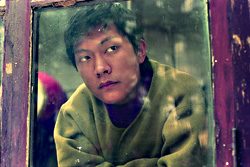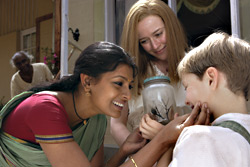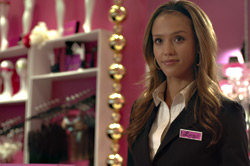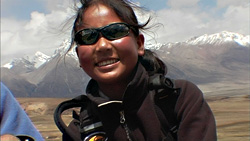In 1976, when Gengnian (Sun Haiying) returns from six years of brutal re-education, he finds that his son, Xiangyang (Zhang Fan), has become a full-fledged urchin, hurling rocks at passers-by along with his colorfully named buddy, Chicken Droppings. Gengnian struggles to tame the boy, forcing him to become an artist rather than a laborer, as Xiangyang wishes (somehow this scenario doesn’t ring true). Director Zhang Yang has a sociologist’s grasp of the games and taunts of boyhood during the Cultural Revolution, but his development of plot and character is correspondingly weak. He constantly introduces what should be extraordinarily dramatic events (earthquakes, floods, abortions), only to drop them after a desultory scene or two. As the action shifts abruptly to 1987 and then 1999, the characters become drippy and out of focus: Gengnian’s stoicism turns into dazed blankness, while the boyishly defiant Xiangyang is just plain old sullen at the age of 30. As father and son argue and reunite every few minutes, accompanied by veeery slow violin music, Sunflower plays less like the epic it aspires to be than an episode of Full House: Beijing.








